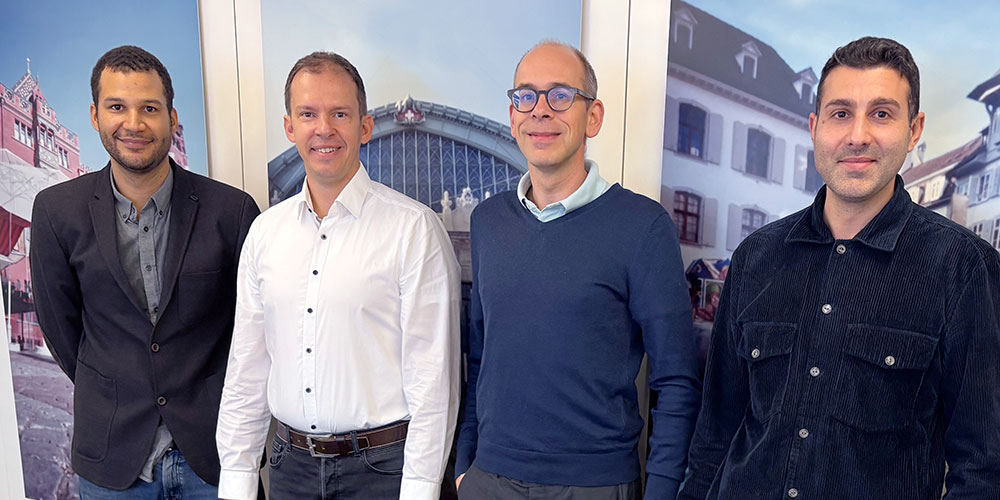Farewell Symposium for Heinrich Reichert
Since 1991, Prof. Heinrich Reichert has been working as a lecturer and researcher at the University of Basel, initially at the Zoological Institute and for the last eight years at the Biozentrum. With his research in the field of neurobiology, he has made a significant contribution to the elucidation of how brain tumors can develop from neural stem cells. On the occasion of his retirement, the neuroscience network “Neurex” will hold a scientific symposium in recognition of his achievements.
12 January 2015
In honor of Prof. Heinrich Reichert, “Neurex” has organized a festive farewell symposium on the “Nervous system development in invertebrates”, a topic which has accompanied Prof. Heinrich Reichert throughout his entire research career. He is particularly interested in the molecular basis of neural stem cell maturation and the development of cancer stem cells that lead to brain tumors.
Neural stem cells are an inexhaustible source. They possess the remarkable ability to develop into an enormous number of neurons through several maturation steps. That the maturation process from neural stem cells to nerve cells follows a defined molecular program was a significant discovery made by Reichert. Furthermore, he identified important genes controlling this program and could show that mutations have fatal consequences. They can lead to uncontrolled stem cell division, or respectively, that mature progenitor cells reverting back into stem cells. These so-called cancer stem cells are considered to be the source of brain tumors. The development of new methods to purify neural stem cells in large quantities and to detect gene mutations provided the basis for these discoveries. Reichert used the fruit fly Drosophila as a model organism, which has much in common with humans at a genetic level. His findings are a milestone on the way to innovative strategies to prevent brain tumors or reverse them, also in man.
During his scientific career Reichert published more than 140 articles in high ranking journals such as “Nature” and “Science”. In the early 1970’s he began his studies in physics, chemistry and biology at the University of Karlsruhe supported by the German National Academic Foundation. Subsequently, he continued research at the Institute of Genetics at the University of Freiburg in Breisgau as a scholarship-holder of the Academic Foundation for three years and then moved as a postdoctoral fellow to the Department of Psychology at Stanford University. In 1982, he was appointed to assistant professor at the Zoological Institute at the University of Basel and after five years at the University of Geneva he returned to the Zoological Institute in Basel to become associate professor. In 2000, he was promoted to Full Professor of Neurobiology and Molecular Zoology and came six years later to the Biozentrum. In addition to his research, Reichert was also dedicated to promoting a cross-border exchange in science. He is a co-founder and Vice President of “Neurex” – a European network of excellence in Neurosciences.
The public whole day Symposium, organized by “Neurex”, will take place on 23rd January, 2015, in the lecture hall (Hörsaal 1) at the Pharmazentrum beginning at 9:00 a.m., and will close with the Farewell Lecture by the future emeritus. Interested persons are asked to register at www.neurex.org.


